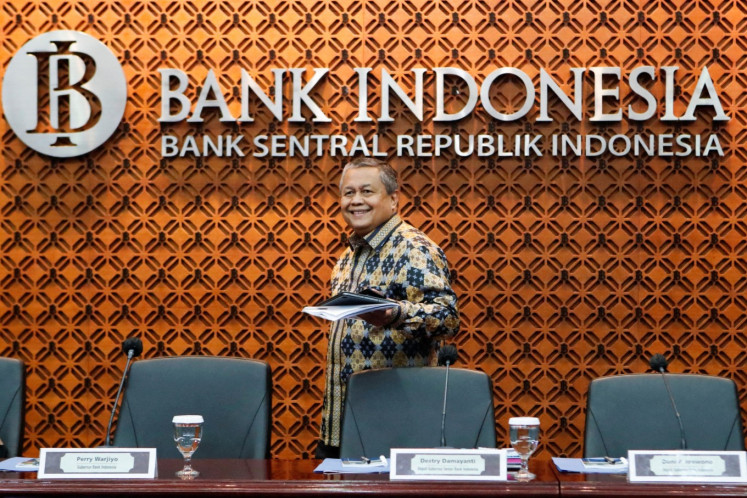In a recent meeting with the Regional Representative Council (DPD) Committee IV and the Finance Ministry, Bank Indonesia (BI) disclosed that it had purchased Rp 198 trillion (US$12.06 billion) worth of government bonds (Surat Berharga Negara, SBN) as of early September 2025. This total includes Rp 12 trillion acquired since August 19. A portion of these funds will support Asta Cita programs such as the Three Million Houses initiative and the Red-and-White Village Cooperatives (KMP).
The burden-sharing scheme, first introduced during Indonesia’s COVID-19 response in 2020, aims to reduce the government’s financing burden. BI explained that the scheme functions by offsetting the funding costs of the SBNs for the housing and KMP programs with interest earned on state deposits held in domestic banks. The net result is then split between BI and the government through an increase in the government’s deposit interest rate at BI.
For the housing program, the effective burden borne by both BI and the Finance Ministry is 2.9 percent each, while for the Red-and-White Village Cooperatives (KMP) program, the effective interest rate stands at 2.15 percent.
BI emphasized that this arrangement complies with Law No. 4/2023 on Financial Sector Development and Strengthening (P2SK), noting that the SBNs were purchased on the secondary market. Article 36A of the P2SK Law restricts BI’s primary market purchases of long-term SBNs to situations where a national crisis has been declared by the president, based on recommendations from the Financial System Stability Committee (KSSK), of which BI is a member.
Meanwhile, BI’s primary market purchases of short-term treasury bills (Surat Perbendaharaan Negara, SPN) remain unrestricted under this law, reaching Rp 48.26 trillion as of August 19.
Of BI’s total SBN purchases this year, around Rp 150 trillion have been allocated for debt-switching—replacing maturing bonds with newer ones. BI has also provided Rp 384 trillion in macroprudential liquidity incentives and reduced its outstanding Rupiah Securities by Rp 208 trillion as of August.
An International Monetary Fund (IMF) study estimated that BI’s burden-sharing costs for 2023–2025 could reach Rp 164 trillion under a hawkish scenario where the benchmark interest rate reaches 6 percent by the end of 2025. This projection considers the near-zero coupon rates of the SBNs involved in the scheme.
However, experts have raised concerns that the arrangement could be perceived by markets as a case of fiscal dominance over monetary authority. BI’s extensive bond purchases have also led to a thinning of market depth, impaired price discovery, increased volatility, and heightened risks of capital outflows. Additionally, these actions contribute to inflationary pressures and a weakening rupiah.
Adding to these challenges, BI’s independence is under further strain due to an ongoing corruption case involving its corporate social responsibility fund. The financial costs associated with the burden-sharing scheme may further constrain BI’s monetary policy flexibility, which is already leaning toward an expansionary stance.
Critics argue that BI is moving beyond its primary mandate of maintaining monetary stability, potentially eroding its independence. Some have proposed expanding BI’s mandate to include employment creation, similar to the U.S. Federal Reserve’s dual mandate. However, such changes should only be considered with clear safeguards in place to preserve BI’s credibility and autonomy.
https://www.thejakartapost.com/opinion/2025/09/20/analysis-bi-burden-sharing-scheme-with-the-government-draws-scrutiny.html


